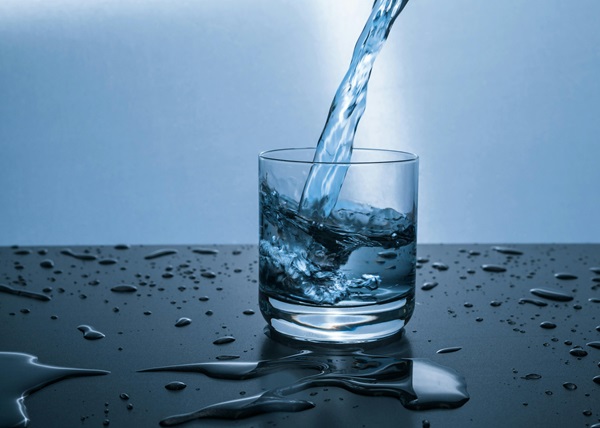Water, the elixir of life, is more than just a thirst quencher; it’s the cornerstone of our existence. In this exploration of the importance of hydration for health, we will dive deep into the multifaceted world of hydration, understanding its importance, recognizing dehydration, factors affecting hydration, and essential tips for maintaining optimal hydration levels.

Section 1: Importance of Hydration for Health
1. The Importance of Water
Water, the fundamental building block of life, constitutes a significant portion of our body. Comprising approximately 60% of an adult’s body weight, it’s involved in nearly every biological process.
2. The Human Body’s Water Composition
Our bodies are a marvel of water engineering. We contain a complex web of interconnected waterways, from blood and lymph to intracellular fluid.
3. Functions of Water in the Body
Cell Function: Water keeps our cells turgid, ensuring they function optimally. It’s the medium for countless biochemical reactions.
Temperature Regulation: Water is the body’s thermostat. It absorbs and releases heat slowly, ensuring our temperature remains stable.
Nutrient Transportation: Nutrients ride the waterways to reach every corner of our body, nourishing cells and tissues.
Section 2: Recognizing Dehydration
4. Understanding Dehydration
Dehydration occurs when you lose more fluids than you take in, upsetting the delicate balance of bodily functions.
5. Common Signs and Symptoms
- Thirst: The body’s alarm system, signaling the need for hydration.
- Dark Urine: A key indicator, dark urine suggests concentrated waste and inadequate hydration.
- Dry Skin: Skin loses its suppleness when water is in short supply.
- Fatigue: Dehydration can sap your energy and leave you feeling lethargic.
6. Impact of Dehydration on Health
Kidney Function: Inadequate hydration can lead to kidney stones and other renal issues.
Cognitive Performance: Studies reveal that even mild dehydration can impair cognitive function, affecting concentration and short-term memory.
Section 3: Factors Affecting Hydration
7. Daily Fluid Requirements
Your hydration needs depend on various factors, including age, sex, activity level, and climate.
8. Climate and Hydration
Hot and dry climates, for example, require increased hydration due to excessive sweating and higher evaporative losses.
9. Physical Activity and Hydration
Pre-exercise Hydration: Properly hydrating before exercise is crucial for performance and safety.
Hydration During Exercise: The rule of thumb is to sip fluids regularly to replace lost sweat.
Post-exercise Hydration: Rehydration after exercise is essential for recovery.

Section 4: The Consequences of Chronic Dehydration
10. Long-term Health Effects
Chronic dehydration can result in a host of health issues, from digestive problems to skin disorders and more.
Kidney Stones: Insufficient water intake can lead to the formation of painful kidney stones.
Digestive Problems: Chronic dehydration can slow down digestion, leading to issues like constipation.
Skin Issues: Inadequate hydration can result in dry, flaky, and even acne-prone skin.
11. The Link Between Hydration and Chronic Illness
Growing evidence suggests a link between chronic dehydration and conditions like hypertension and type 2 diabetes.
Section 5: Tips for Staying Properly Hydrated
12. Establishing a Hydration Routine
A well-thought-out hydration routine can help you stay on track.
13. Water Sources
Tap Water vs. Bottled Water: The debate rages on, but both can be safe sources of hydration.
Hydrating Foods: Certain fruits and vegetables contain high water content, contributing to your daily hydration needs.
14. Hydration Myths Debunked
Separating hydration fact from fiction is essential for making informed choices.
15. Electrolytes and Hydration
Electrolytes play a crucial role in maintaining fluid balance.
When to Consider Electrolyte Drinks: In certain situations, such as intense physical activity, electrolyte drinks can be beneficial.

Section 6: Special Considerations
16. Hydration in Children
Children have different hydration needs and may not always recognize when they’re thirsty.
17. Hydration for the Elderly
Aging can alter the body’s water balance, making hydration a critical consideration for seniors.
18. Pregnancy and Hydration
Pregnant women need increased fluids to support both their own and their baby’s needs.
Section 7: Hydration and Athletic Performance
19. Importance of Hydration for Athletes
Athletes must pay special attention to their hydration to maintain performance and avoid heat-related illnesses.
20. Sports Drinks vs. Water
The choice between sports drinks and water depends on the intensity and duration of the activity.
21. Strategies for Athletes
Hydration Plans: Personalized hydration strategies are essential for athletes.
Monitoring Hydration Status: Regularly assessing hydration status ensures peak performance.
Section 8: Importance of Hydration to Mental Performance
22. The Brain’s Dependence on Hydration
The brain is incredibly sensitive to changes in fluid balance.
23. Hydration and Cognitive Function
Staying well-hydrated can sharpen focus and support cognitive abilities.
24. Staying Hydrated at Work or School
Simple strategies can help maintain hydration throughout the work or school day.
Conclusion
In a world awash with health advice, one simple and essential truth remains: proper hydration is the bedrock of well-being. It’s not just about drinking water; it’s about understanding the importance of hydration for health.




